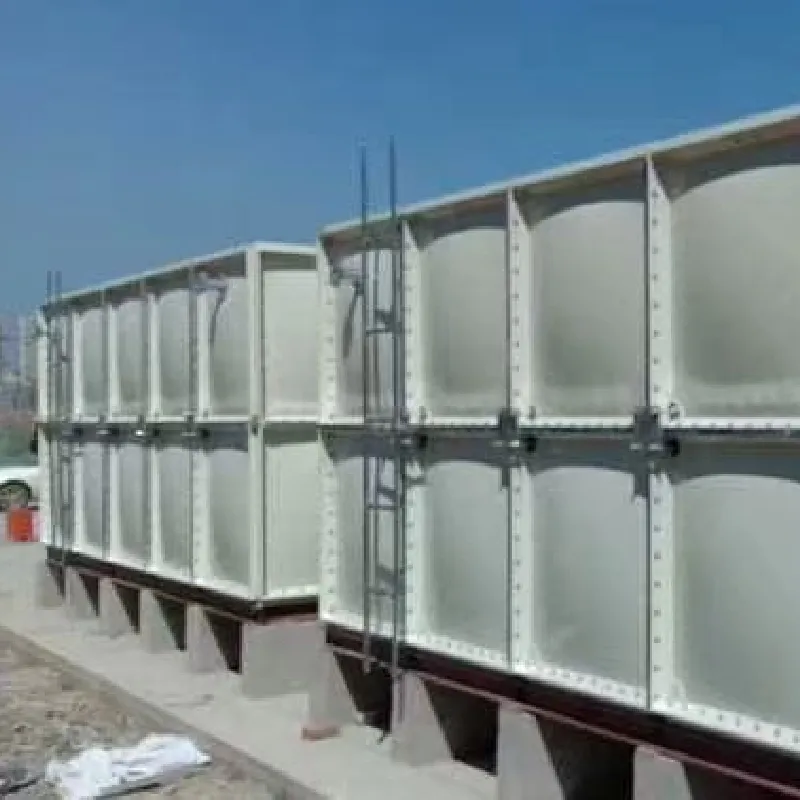loading...
- No. 9, Xingyuan South Street, Dongwaihuan Road, Zaoqiang County, Hengshui, Hebei, China
- admin@zjcomposites.com
- +86 15097380338
- Welcome to visit our website!
Advancements in Fiber-Reinforced Plastic Tanks and Vessels for Enhanced Durability and Performance
The Benefits and Applications of Fibre Reinforced Plastic Tanks and Vessels
Fibre reinforced plastic (FRP) tanks and vessels have emerged as a leading solution in various industries due to their exceptional strength-to-weight ratio, corrosion resistance, and versatility. Unlike traditional materials such as steel or concrete, FRP is composed of a polymer matrix reinforced with fibrous materials, which can include glass, carbon, or aramid fibers. This unique composition offers an array of benefits that make FRP tanks and vessels suitable for a wide range of applications.
Lightweight and Durable
One of the most significant advantages of FRP tanks and vessels is their lightweight nature. FRP is significantly lighter than metal counterparts, which simplifies transportation and installation. This characteristic is particularly beneficial in applications where tank mobility is required or where structural integrity may be compromised under heavy loads. Despite their lightness, FRP materials maintain impressive durability and tensile strength, making them suitable for high-pressure environments.
Corrosion Resistance
FRP tanks and vessels excel in environments prone to corrosion. They are inherently resistant to a variety of chemicals, including acids, bases, and salts, which causes traditional materials to deteriorate over time. This resistance not only extends the lifespan of FRP tanks and vessels but also reduces maintenance costs, making them a more economical long-term solution. Industries such as chemical processing, wastewater treatment, and food processing frequently utilize FRP for storing corrosive substances due to these properties.
Design Flexibility
Another notable benefit of FRP is design flexibility. The manufacturing process allows for the customization of shapes, sizes, and wall thicknesses to suit specific application requirements. This adaptability is a boon for industries that require specialized storage solutions. For example, FRP vessels can be designed with complex geometries to enhance flow characteristics in bioreactors or storage tanks. Additionally, the ability to produce seamless tank constructions minimizes leakage risks, further improving safety and reliability.
fibre reinforced plastic tanks and vessels

Thermal Insulation
FRP also provides excellent thermal insulation properties. The material's low thermal conductivity helps to maintain the temperature of the contents stored within the tanks and vessels, making them ideal for applications where temperature control is critical. This characteristic is particularly significant in the oil and gas sector, where fluctuations in temperature can affect product integrity.
Environmental Impact
As global awareness of environmental issues grows, the demand for sustainable materials has increased. FRP tanks and vessels can contribute to greener practices. Their longevity and reduced maintenance needs lower the frequency of replacements and repairs, thereby minimizing waste. Furthermore, many FRP materials can be manufactured using recycled fibers, further reducing their environmental footprint.
Applications Across Industries
The versatility of FRP tanks and vessels means they find use in numerous industries. In the chemical industry, they are employed for storing hazardous materials due to their resistance to corrosion. In the water treatment sector, FRP vessels are used for filtration tasks, such as in reverse osmosis systems. The food and beverage industry utilizes these vessels for the storage of ingredients and finished products, ensuring that the materials do not contaminate the contents.
Conclusion
Fibre reinforced plastic tanks and vessels represent a significant advancement over traditional storage solutions. Their lightweight, durable, and corrosion-resistant properties, coupled with design flexibility and environmental advantages, make them ideal for various industrial applications. As industries continue to seek efficient and sustainable materials, the role of FRP tanks and vessels is poised to expand, reflecting the innovative spirit of modern engineering and sustainability. Whether for chemical storage, water treatment, or food processing, FRP continues to demonstrate its potential as a reliable and cost-effective solution.
-
Transform Your Spaces with FRP Grating SolutionsNewsNov.04,2024
-
The Versatility and Strength of FRP RodsNewsNov.04,2024
-
The Excellence of Fiberglass Water TanksNewsNov.04,2024
-
The Benefits of FRP Grating for Your ProjectsNewsNov.04,2024
-
Elevate Your Efficiency with FRP Pressure VesselsNewsNov.04,2024
-
Welcome to the World of FRP Pressure VesselsNewsOct.12,2024
-
Unveiling the Future of Filtration: Why FRP Filter Vessels are a Game ChangerNewsOct.12,2024
